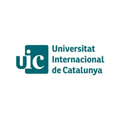Cultural Studies Schools and Programs in Spain

Black Studies Minor
Founded in the autumn of 1994, Suffolk University’s Black Studies minor program offers a multi-disciplinary course that embraces the social sciences, history and the humanities. Students will investigate Black history and culture, throughout African Dispersion in all parts of the world.
The area of Black Studies is an international one and students will be supported to take up study abroad opportunities. Students may fulfil some of the requirements for the Black Studies minor while studying abroad or through courses that have an international constituent.
Level: Undergraduate Associate
Language of instruction: English
Location: Madrid

Cultural Institutions and Policies
Cultural Institutions and Policies are used to promote accountability and safeguard various forms of culture, including cultural goods that society endorse or receive as heritage from previous generations, and which are the cumulative outcome of artistic creation, values and beliefs that the community shares.
In recent years, the cultural field has greatly diversified and become a more vital sector within economy and society. Therefore, cultural activity requires increasingly, the support of an organizational framework and the involvement of different public and private players.
Global trends are seeing much more appeal by cultural operators in developing trans-border methodologies to culture – comprehending the political, social and economic climate of global engagement is an important step to successful international cultural action.
Level: Professional Development
Language of instruction: Catalan, English, Spanish
Location: Barcelona

Tools for Managing Culture
This Tools for Managing Culture course offers applied knowledge of the methods and tools needed for managing cultural activities and institutions, while helping to progress the students’ capacity to apply these resources to resolving particular problems through dealing with them appropriately and thereby refining the decision-making process.
This program, with a keenly instrumental focus, is meant to teach students the basic management methods used across all fields of culture and familiarise them with their hands-on application. The main focus is based on the direct use of these analysis tools and treatment of the most commonplace management problems.
Objectives of the program are to learn: The responsibilities of a cultural manager; Criteria for evaluating projects; Analysis of the plausibility of a project; Dealing with costs; Dealing with investments; Decision-making in difficult situations and Management of staff.
Level: Professional Development
Language of instruction: Catalan, English, Spanish
Location: Barcelona

Funding for culture
The objective of the Funding for culture course is to give students with the required tools for cultural management, with a particular focus on financial matters. Students create, execute and reconcile budgets and study the main facets of accounts, balance sheets and other important fields of finance. Students also learn about the devices and main legislation that a cultural manager requires to be aware of, for example taxation, funding, contracts, etc.
The aim of this course is to give cultural managers with the required knowledge for financially managing cultural projects and organisations. It concentrates especially on the management of cultural firms along with publishing companies, museums and archives. It is meant for professionals from different cultural industries.
Level: Professional Development
Language of instruction: Catalan, English, Spanish
Location: Barcelona

Cultural Marketing
Cultural marketing is, commonly, considered a process connected with promotion for sale of cultural goods or cultural services and a social and managerial procedure by which managers examine the audiences for their cultural goods and services. Therefore, cultural marketing is usually product oriented.
This course is designed to study the delimitation of cultural marketing from a universal and traditional marketing perspective, underlining specifics and special goals, along with observing particular challenges, cultural marketing now days has to face.
The structure of this course is organized into four modules; the first is based on theoretical history of traditional and cultural marketing; the second, focuses on the components of marketing mixt; the third is centred on the marketing plan and their features in museums, events as well as in performing arts; and the fourth focuses on four diverse case studies.
Level: Professional Development
Language of instruction: Catalan, English, Spanish
Location: Barcelona






